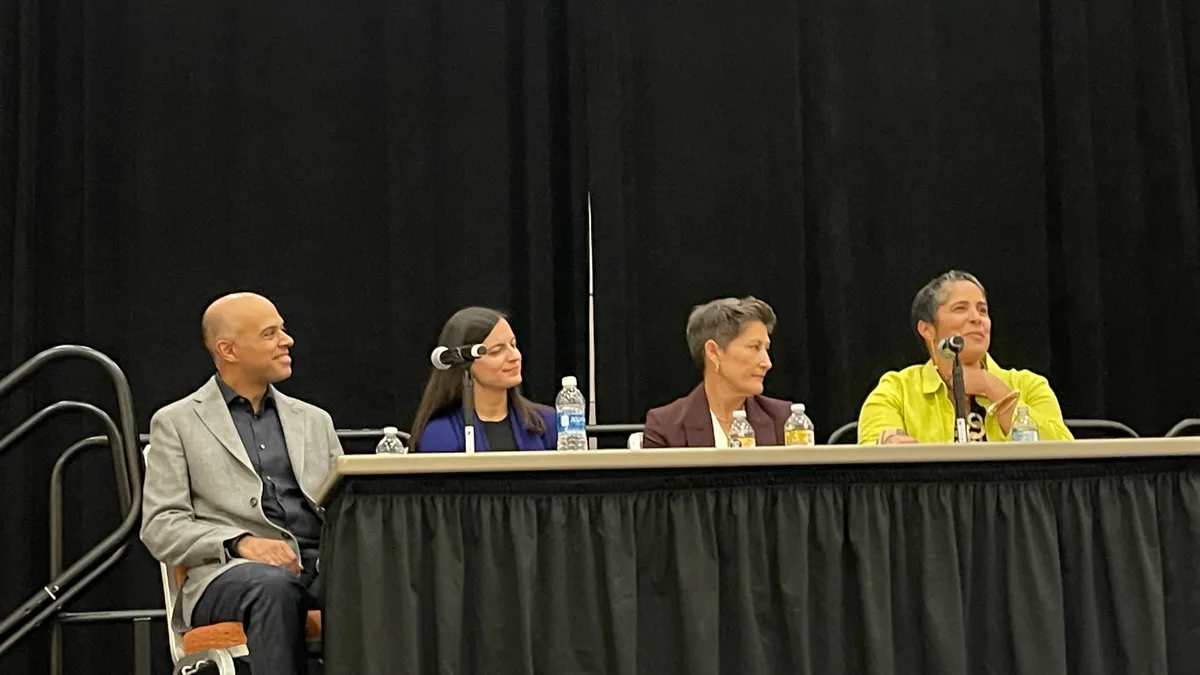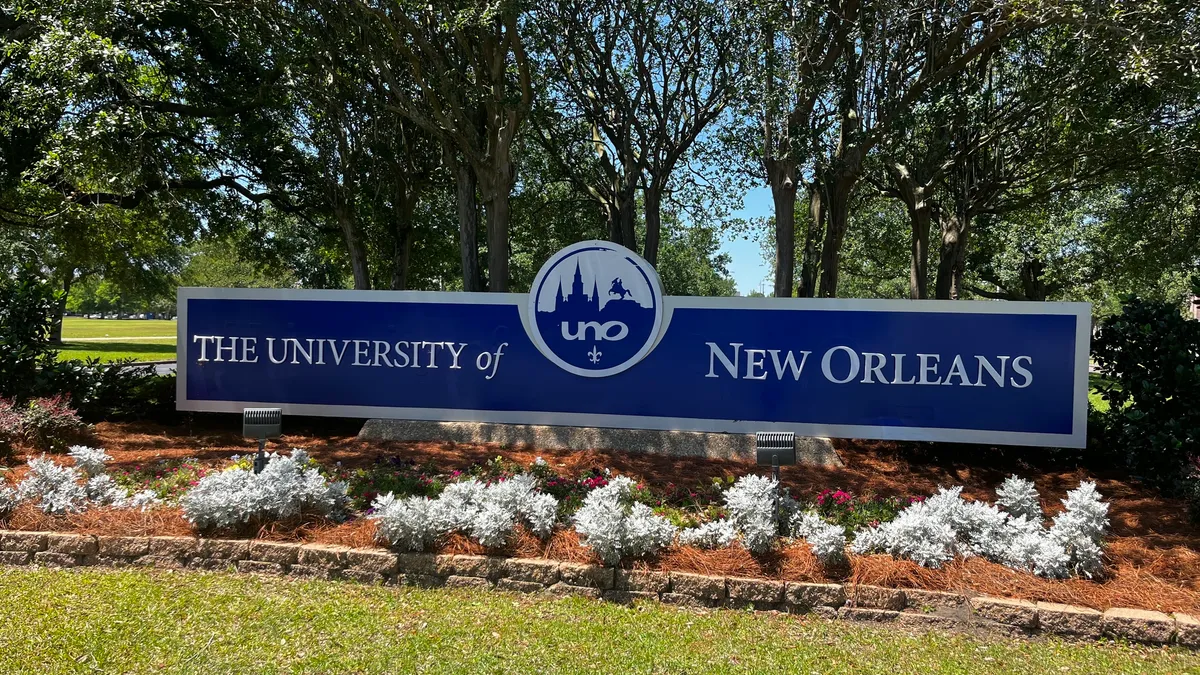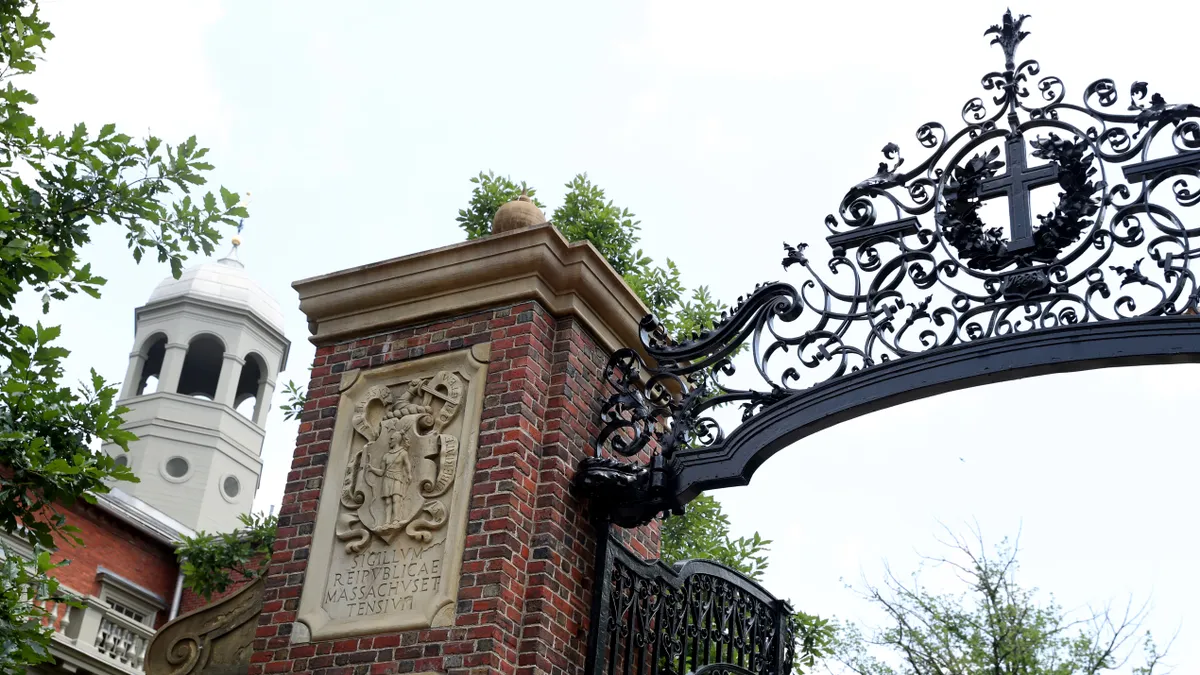BALTIMORE — Three top executives from major testing organizations — ACT, College Board and ETS — found themselves on the spot at the National Association for College Admission Counseling’s annual conference here Friday.
“How do you as leaders balance the pressure of revenue versus mission and access?” moderator Shirley Collado, president and CEO of College Track, a college access group, asked the testing officials during the NACAC panel. “Because at the end of the day, it is a business.”
Collado, in her question, touched on perennial criticisms that college entrance exams box out students already underrepresented in higher education. That’s because their wealthier peers can afford the extensive tutoring that can help lock down a high score.
One of the leaders, Amit Sevak, chief executive of ETS, gave an answer that likely wouldn’t satisfy skeptics: “There actually isn’t a tension,” he said, between the concepts Collado raised.
“We’re all nonprofit organizations, we’re all here for the public interest,” Sevak said. “We’re all here to advance our social and public impact by delivering high-quality assessments.”
ETS administers the Graduate Record Examinations, or GRE.
The three officials — Sevak, Janet Godwin, chief executive of ACT, and Priscilla Rodriguez, senior vice president at College Board — were there ostensibly to address the future of tests. Once ubiquitous in admissions, entrance exams have seen their role diminished with the COVID-19 pandemic and the subsequent rise of test-optional policies.
The executives shared few specifics about what’s next for their products. Still, the session gave admissions professionals a rare, direct glimpse into their thinking amid the test-optional environment.
A great upheaval
Much of the hour-long panel centered on recent upheaval in higher education, specifically the pandemic and what Godwin and Rodriguez called the “overnight” ascension of test-optional admissions.
More than 2,000 colleges aren’t mandating the SAT and ACT for fall 2024 admissions, including institutions that historically never asked for scores, according to a new tally by FairTest, a group that advocates for limited use of assessments.
But while many colleges have maintained test-optional admissions, Rodriguez argued students still want to take the SAT. She said that for six to seven months during the pandemic when the College Board couldn’t run its assessments, students, parents and K-12 schools called and emailed “begging us, how soon can you guys be back with your assessment?”
“That is not what I was expecting," Rodriguez said.
About 1.4 million students in the 2022 high school graduating class took the ACT, and 1.7 million took the SAT. This is down sharply from pre-pandemic numbers, with 2.1 million students in the class of 2016 taking the ACT, and 2.2 million in both the 2019 and 2020 classes taking the SAT.
Rodriguez said she backs test-optional policies because they allow students to decide if the SAT truly reflects their high school record. But the test can also give students a chance to showcase their academic prowess for institutions that “maybe have never had an applicant from that high school land on their desk,” Rodriguez said.
Collado, however, suggested those calling the College Board inquiring about the test’s status “were some of the most privileged families in the ecosystem in getting a step ahead.”
Her remark elicited light clapping in the audience.
Collado, a former president of Ithaca College and self-described testing critic, actually recently joined ACT’s board of directors. She said she was confounded by the invitation at first, given her position on testing, but after speaking with Godwin became convinced the organization wanted to examine its practices.
Godwin said the disruption actually offered the ACT company, and higher ed broadly, an opportunity to “think differently, to dig deep and really understand if something is working.”
“What really matters to us — and I think to everyone in this room — is students having experiences starting in junior high through high school that can help them discover their goals and aspirations,” Godwin said.
What is changing?
Each of the testing executives referenced a need to personalize assessments more for students.
For the College Board’s SAT and ACT, this in part means shifting their tests to digital formats, which some students might prefer.
The College Board announced last year it will administer the SAT digitally for international students this year and domestically in 2024. The ACT had offered limited online options since 2016, but will pilot a digital iteration of the test more broadly beginning in December.
However, Rodriguez also raised the idea of “project-based assessments,” where students aren't sitting for a two- or three-hour test, but instead leaning into “an area of interest and passion.” She did not give further detail about what this assessment could entail.
Rodriguez said the tests haven't "fully stepped into relevance” for contemporary students.
“That’s a space I’m excited we’re stepping into,” Rodriguez said.
She and Godwin said they are always open to public feedback. Godwin urged the crowd to email her directly. And Rodriguez said she would spend her weekend reviewing comments NACAC attendees left via a QR code at the College Board booth.
“You have our ear as you always do,” Rodriguez said.





















